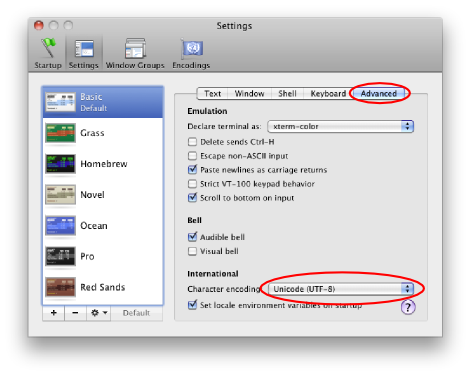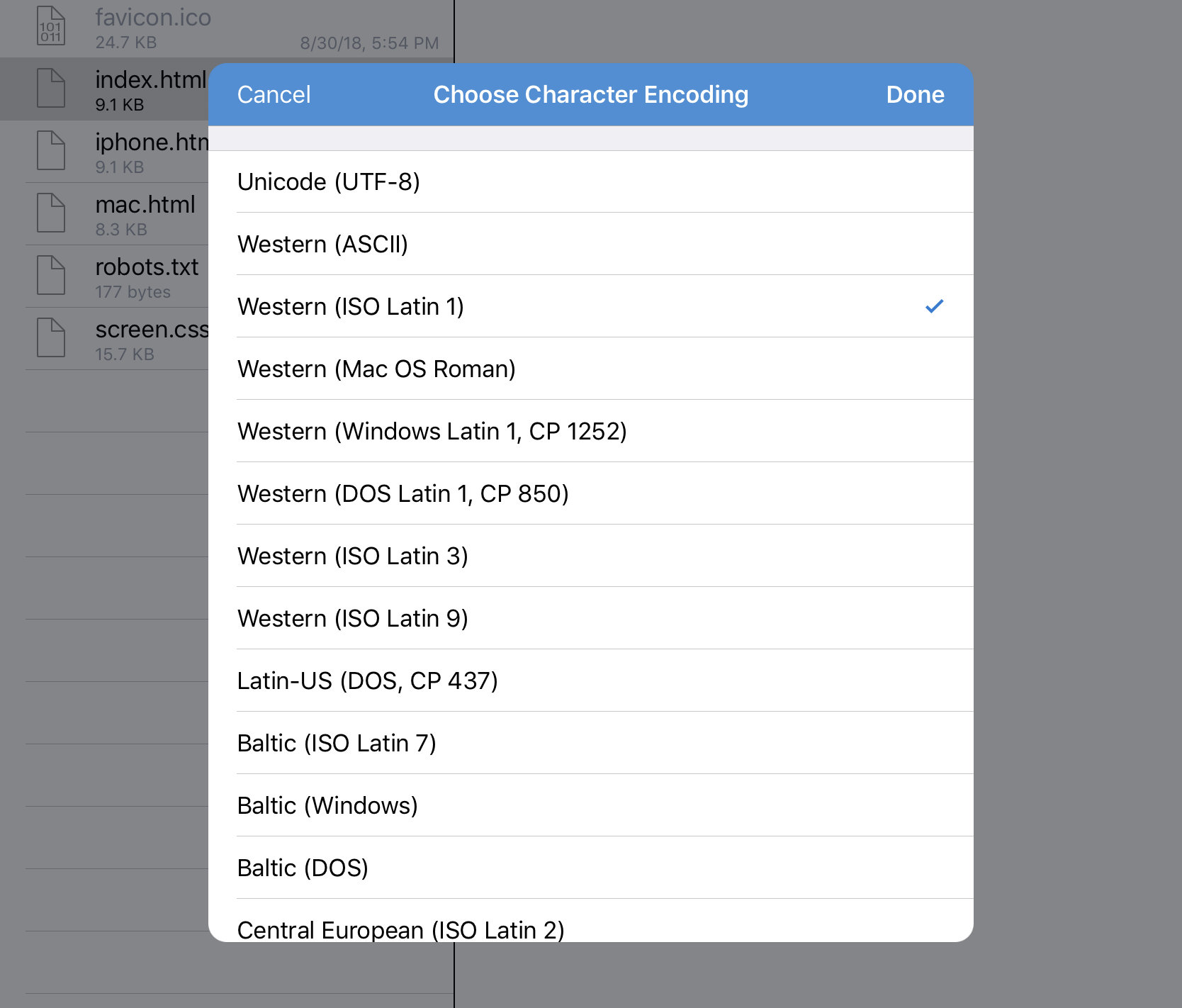

- #Text file encoding for mac mac os#
- #Text file encoding for mac code#
- #Text file encoding for mac iso#
- #Text file encoding for mac free#
Return IntStream.range(0, encoded_input.length) Let's define a simple method in Java to display the binary representation for a character under a particular encoding scheme: String convertToBinary(String input, String encoding)īyte encoded_input = Charset.forName(encoding)
#Text file encoding for mac free#
This still leaves one bit free in every byte!ĪSCII's 128-character set covers English alphabets in lower and upper cases, digits, and some special and control characters. This essentially means that each character in ASCII is represented with seven-bit binary numbers.
#Text file encoding for mac code#
In fact in those cases it is potentially harmful.One of the earliest encoding schemes, called ASCII (American Standard Code for Information Exchange) uses a single byte encoding scheme. with fontspec) or with LuaTeX, XeTeX, or TexpadTeX when running in Unicode mode. This should only be done with older 8-bit typesetters such as pdfTeX, it is not required when using modern fonts (e.g. Please note that often you need to specify the font(output) encoding as well as the input encoding. It is always better to bring the files up to date by converting them to UTF-8. We accept that this is necessary when a collaborator is either unable, or unwilling, to modernise to UTF-8, but we do not recommend going this route.
#Text file encoding for mac iso#
#Text file encoding for mac mac os#

This is usually because Texpad is set by default to use UTF-8 encoding for saving files, and users are often accustomed to older, obsolete encodings such as Latin-1 or MacOSRoman. Migrating to Texpad from other editorsĪ known problem for users migrating to Texpad from another editor is that when typesetting LaTeX throws errors related to the presence of non-ascii characters (for example é, ü and other accents). You will receive an error from Texpad, and you will have to remove those characters. If you are using a legacy encoding (ie something without UTF in the name), then there will be characters you may type into your document that Texpad is not able to save to disk. Cannot Save in this encoding errorsĪpart from incompatibility with modern tools and users, we recommend Unicode encodings as they are the only encodings that are capable of encoding all Characters. In almost all cases this is not a problem, as almost everybody uses UTF-8 in the TeX, and as Texpad is set to this by default, as are recent versions of TeX. This means that Texpad must be set by the user to the correct encoding before opening a file. We wish we could sniff encodings automatically, but this is an imprecise deduction, and the results are catastrophic if Texpad were to guess incorrectly. Sadly, there is no way to deduce the encoding of a file from the file, the information does not exist in the file. We strongly recommend that all users use UTF-8 as their text encoding. Recent versions of TeX default to UTF-8, as does Texpad. Historically, there are a large number of different ways of encoding text, but current best practices have converged on one of a small number of Unicode encodings (such as UTF-16 and UTF-8) as the best way to do this. This conversion between characters in an editor, and data on disk is known as Text Encoding. There is a choice on how those characters are converted to data and written to disk. A text document, like a tex source file, consists of a list of characters.


 0 kommentar(er)
0 kommentar(er)
